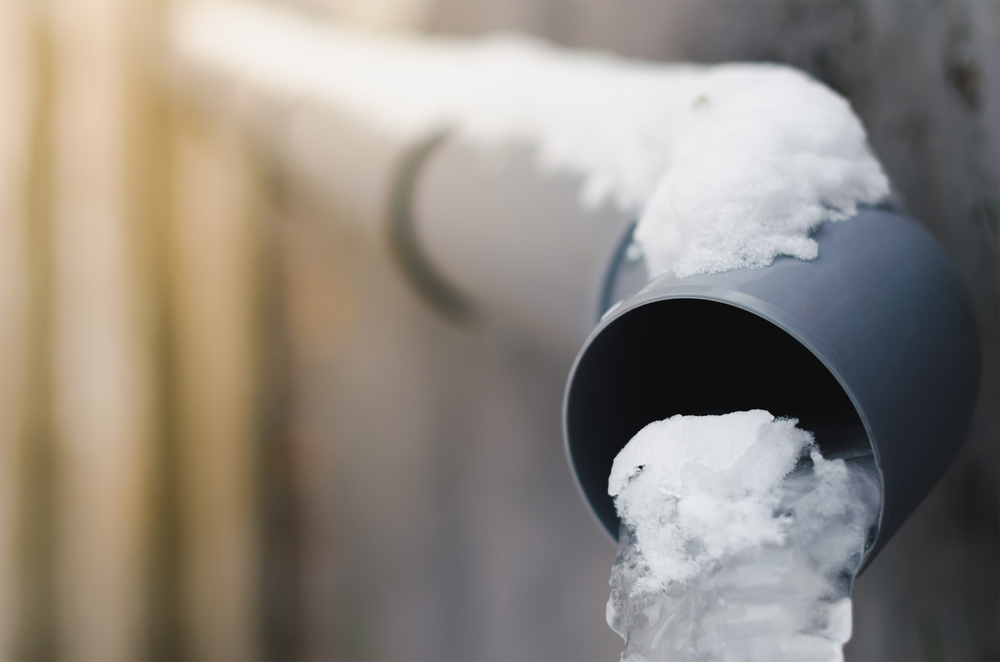Ways to Defend Pipes from Cold Weather: Professional Guidance
Ways to Defend Pipes from Cold Weather: Professional Guidance
Blog Article
Are you currently on the lookout for advise around Helpful Tips to Prevent Frozen Pipes this Winter?
:strip_icc()/snow-outdoor-faucet-pipes-4af65d1e5e904fb1aa7bf74071fe5d89.jpg)
Winter can ruin your pipes, particularly by freezing pipes. Here's just how to avoid it from happening and what to do if it does.
Intro
As temperatures decrease, the risk of icy pipelines increases, possibly resulting in pricey repair services and water damage. Comprehending how to avoid icy pipelines is important for home owners in chilly environments.
Comprehending Icy Pipes
What causes pipes to freeze?
Pipes freeze when subjected to temperature levels below 32 ° F (0 ° C) for expanded periods. As water inside the pipes freezes, it broadens, taxing the pipeline wall surfaces and potentially causing them to rupture.
Risks and damages
Icy pipelines can cause water interruptions, property damages, and costly fixings. Ruptured pipes can flood homes and create comprehensive structural damage.
Indicators of Frozen Water Lines
Determining frozen pipelines early can prevent them from breaking.
Exactly how to recognize frozen pipelines
Try to find decreased water circulation from taps, unusual odors or sounds from pipelines, and visible frost on subjected pipelines.
Prevention Tips
Insulating susceptible pipelines
Cover pipes in insulation sleeves or use warm tape to secure them from freezing temperature levels. Concentrate on pipelines in unheated or exterior areas of the home.
Home heating techniques
Keep interior spaces effectively warmed, specifically locations with pipes. Open up cabinet doors to allow cozy air to flow around pipes under sinks.
Safeguarding Exterior Pipes
Garden tubes and outside faucets
Separate and drain yard hose pipes before winter months. Set up frost-proof faucets or cover outside taps with protected caps.
What to Do If Your Pipelines Freeze
Immediate actions to take
If you suspect icy pipes, maintain faucets open to soothe pressure as the ice thaws. Make use of a hairdryer or towels soaked in warm water to thaw pipes slowly.
Long-Term Solutions
Architectural changes
Think about rerouting pipelines far from exterior wall surfaces or unheated locations. Include added insulation to attic rooms, cellars, and crawl spaces.
Upgrading insulation
Invest in top quality insulation for pipes, attic rooms, and wall surfaces. Appropriate insulation assists keep consistent temperatures and reduces the threat of icy pipes.
Verdict
Stopping icy pipes calls for aggressive actions and fast responses. By understanding the reasons, signs, and preventive measures, homeowners can safeguard their pipes throughout cold weather.
6 Proven Ways to Prevent Frozen Pipes and Protect Your Home
Disconnect and Drain Garden Hoses
Before winter arrives, start by disconnecting your garden hoses and draining any remaining water. Close the shut-off valves that supply outdoor hose bibs and leave the outdoor faucet open to allow any residual water to drain. For extra protection, consider using faucet covers throughout the colder months. It’s also important to drain water from any sprinkler supply lines following the manufacturer’s directions.
Insulate Exposed Pipes
Insulating your pipes is an effective way to prevent freezing. Pipe insulation is readily available at home improvement stores and is relatively inexpensive. Pay close attention to pipes in unheated areas such as the attic, basement, crawl spaces, or garage. Apply foam insulation generously to create a buffer against the cold. You can also wrap your pipes in heat tape or thermostat-controlled heat cables for added warmth.
Seal Air Leaks
Inspect your home for any cracks or openings that could let in cold air. Seal any holes around the piping in interior or exterior walls, as well as the sill plates where your home rests on its foundation. Additionally, make sure to keep your garage door closed unless you’re entering or exiting. Leaving it open creates a significant air leak that can lead to frozen pipes.
Allow Warm Air Circulation
During cold snaps, it’s essential to allow warm air to circulate evenly throughout your home. Leave interior doors ajar to promote better airflow. Open kitchen and bathroom cabinets to help distribute heat consistently around the rooms. If you have small children or pets, be sure to remove any household chemicals or potentially harmful cleaners from open cabinets for safety.
Let Faucets Drip
A small trickle of water can make a big difference in preventing ice formation inside your pipes. When temperatures drop significantly, start a drip of water from all faucets served by exposed pipes. This continuous flow helps prevent the water from freezing. Additionally, running a few faucets slightly can relieve pressure inside the pipes, reducing the chances of a rupture if the water inside does freeze.
https://choateshvac.com/6-proven-ways-to-prevent-frozen-pipes-and-protect-your-home/

Do you really like more info about How to Prevent Your Pipes From Freezing? Post a remark down the page. We will be pleased to listen to your opinions about this review. In hopes that you come back again in the near future. Those who enjoyed reading our page if you please remember to pass it around. Thank-you for your time invested reading it.
Call Today Report this page